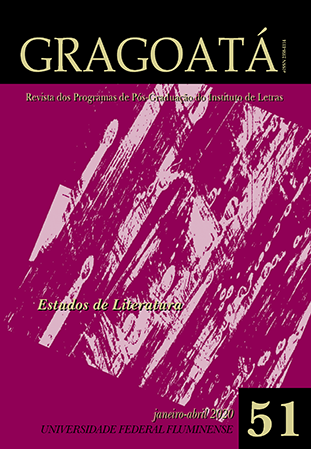Blanchot, Heidegger: inspiration for reading a poem by Henriqueta Lisboa
DOI:
https://doi.org/10.22409/gragoata.v25i51.38085Keywords:
poetic sense, Blanchot, Heidegger, “Rosa plena”.Abstract
The poetic sense, according to Blanchot, is an absent sense. As for Heidegger, he says that poetry founds its own truth. This paper intends to read/listen the poem “Rosa plena” (“Full Rose”), by Henriqueta Lisboa, to show that the poetic sign is unstable, full of gaps and possibilities, configuring Blanchot’s disaster, which speaks for the oblivion, for the silence, and making it impossible to set a safe correspondence for the poetic images, a transparent association between the symbols and the cultural burden they bear. Blanchot’s and Heidegger’s thoughts, among others, help in our steps.
Downloads
Downloads
Published
How to Cite
Issue
Section
License
Authors who publish in Gragoatá agree to the following terms:
The authors retain the rights and give the journal the right to the first publication, simultaneously subject to a Creative Commons license CC-BY-NC 4.0, which allows sharing by third parties with due mention to the author and the first publication by Gragoatá.
Authors may enter into additional and separate contractual arrangements for the non-exclusive distribution of the published version of the work (for example, posting it in an institutional repository or publishing it in a book), with recognition of its initial publication in Gragoatá.

Gragoatá is licensed under a Creative Commons - Attribution-NonCommercial 4.0 International.











